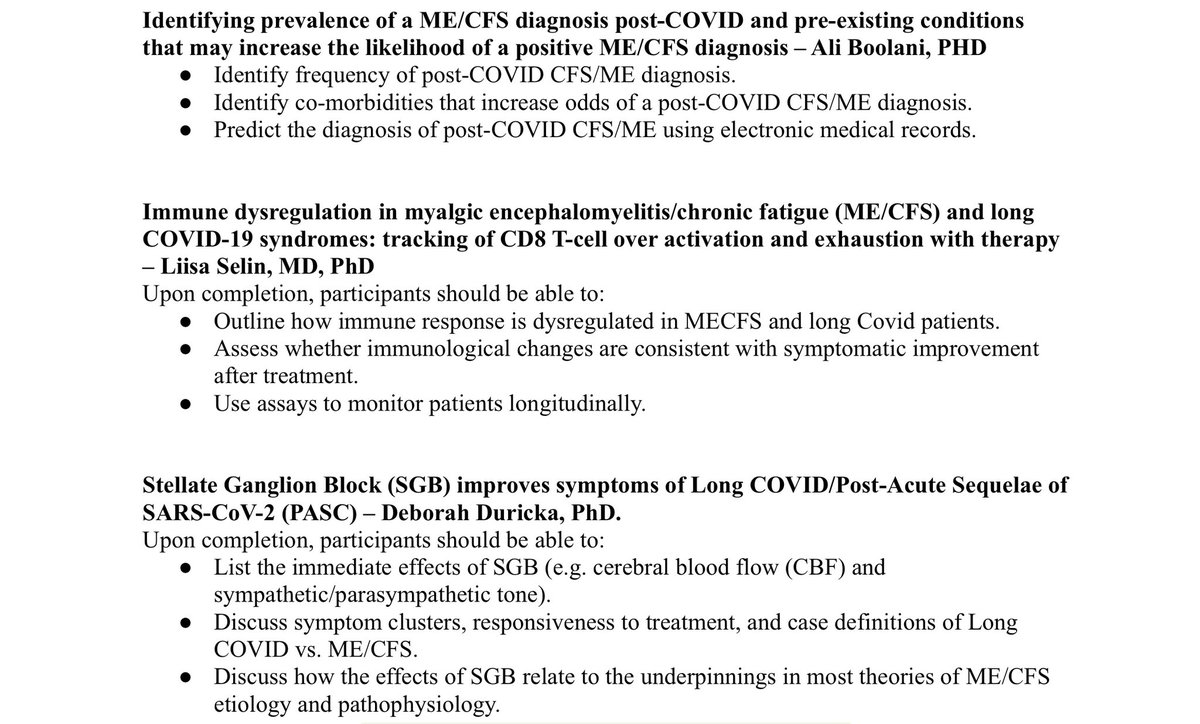Next up at the #IACFSME conference is Dr. Nicola Clague-Baker @ClagueNjc36 presenting on “Feasibility of investigating oxygen consumption (VO2), heart rate variability, blood pressure and lactic acid levels of people with myalgic encephalomyelitis during normal daily activities”.
This was a (successful) feasibility study, with enrollment being closed after 24h, showing that physiological measurement during everyday activity is possible for those patients with mild to severe #MECFS .
Dr. Clague-Baker‘a study adapted for different severities of ME/CFS in order to identify abnormalities and prevent harm to patient health. The outcome measures identified abnormal physiological changes in all patients with #MECFS.
Dr. Leonard A. Jason presented on “Pre-Illness metabolomics data among college students following mononuclosis and ME/CFS reveals differences in multiple metabolites and metabolic pathways”. #IACFSME #MECFS #LongCovid
The key question to his study is: why do some people continue to be ill following a viral infection versus those recover from that same illness. His study examined patients prior to them getting sick (with mono, EBV). #MECFS
Study findings : patients “who developed #MECFS following IM [mono infection] did not have significant pre-illness baseline differences in stress, coping, anxiety, or depression”. “Baseline deficiencies in IL-5, IL-6, and IL-13 in the severe ME/CFS” group.
“Deficiencies in production of IL-5 and IL-13 prior to contracting IM [infection] may influence immune response and immune dysregulation once the virus is contracted.#MECFS #LongCovid
“Those who develop severe ME/ CFS following IM had more centrality, or dense interconnected cytokine networks at baseline, at least six weeks prior to the onset of IM”. #MECFS #LongCovid
“Significant differences in peak area value between the severe ME/CFS and recovered groups were observed for eight metabolites.” “These metabolites are thus candidate biomarkers for predicting the development of severe ME/CFS 6 months following IM.”#MECFS #LongCovid
This ”suggests changes in metabolic pathways that may plausibly contribute to the pathophysiology of ME/CFS in general. These findings reinforce biological differences between those who fully recover following IM and those who go on to develop severe ME/ CFS.” #MECFS #LongCovid
Dr. Katie A. Glass‘s presented on :“Urine metabolomics exposes anomalous recovery after maximal exertion in ME/CFS female patients.” #IACFSME #mecfs No previous studies of ME/CFS patients had measured metabolites in urine after an exercise challenge.
Dr Glass found: excretion of metabolites in urine was altered in female #MECFS patients, compared to controls, post-exercise - particularly metabolites involved in fatty acid metabolism and pathways related to glucose metabolism. More research is needed, especially on lipids.
• • •
Missing some Tweet in this thread? You can try to
force a refresh










